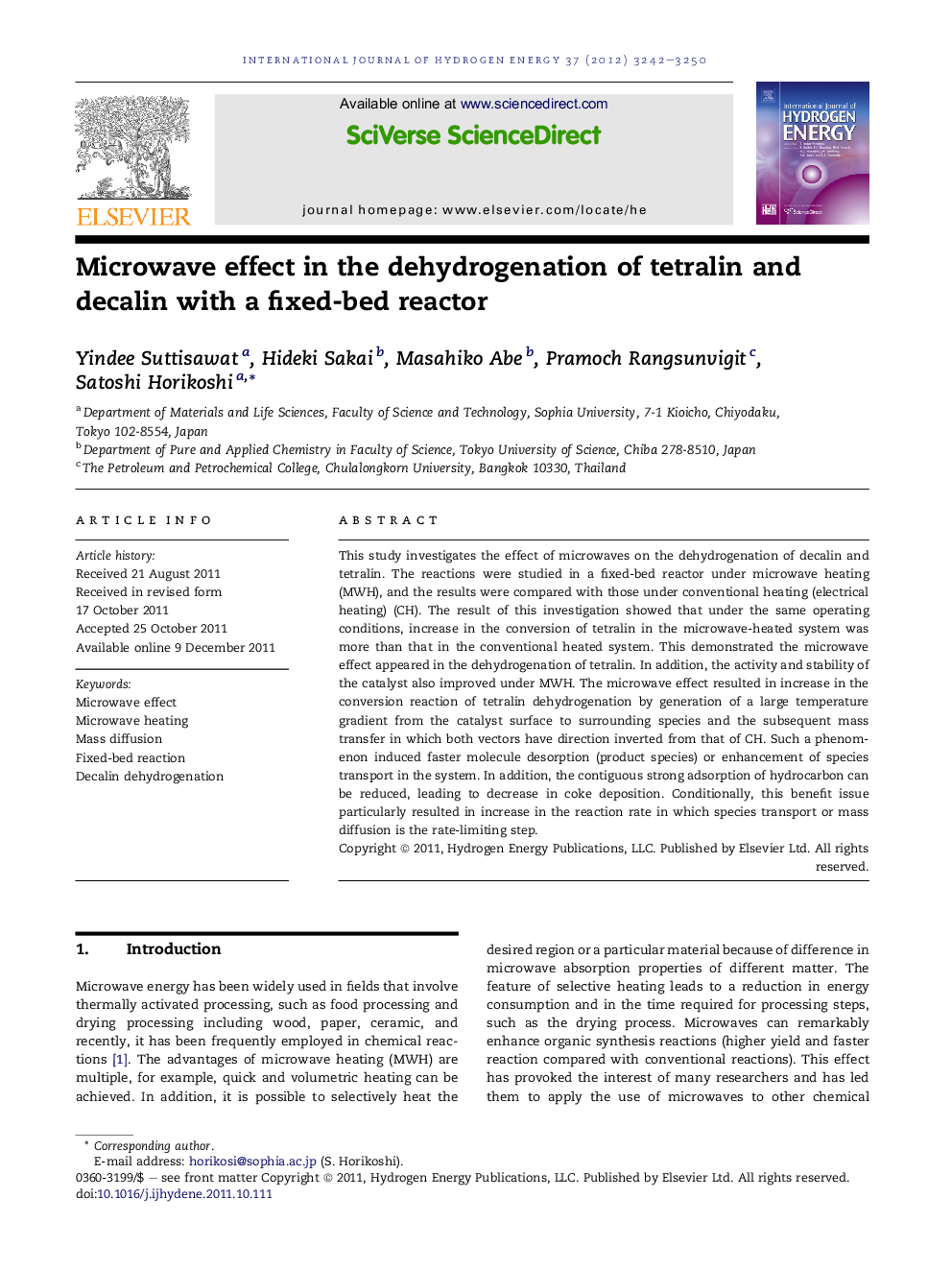| Article ID | Journal | Published Year | Pages | File Type |
|---|---|---|---|---|
| 1282329 | International Journal of Hydrogen Energy | 2012 | 9 Pages |
This study investigates the effect of microwaves on the dehydrogenation of decalin and tetralin. The reactions were studied in a fixed-bed reactor under microwave heating (MWH), and the results were compared with those under conventional heating (electrical heating) (CH). The result of this investigation showed that under the same operating conditions, increase in the conversion of tetralin in the microwave-heated system was more than that in the conventional heated system. This demonstrated the microwave effect appeared in the dehydrogenation of tetralin. In addition, the activity and stability of the catalyst also improved under MWH. The microwave effect resulted in increase in the conversion reaction of tetralin dehydrogenation by generation of a large temperature gradient from the catalyst surface to surrounding species and the subsequent mass transfer in which both vectors have direction inverted from that of CH. Such a phenomenon induced faster molecule desorption (product species) or enhancement of species transport in the system. In addition, the contiguous strong adsorption of hydrocarbon can be reduced, leading to decrease in coke deposition. Conditionally, this benefit issue particularly resulted in increase in the reaction rate in which species transport or mass diffusion is the rate-limiting step.
► We study microwave heating effect (MWH) in dehydrogenation of decalin and tetralin. ► Only tetralin dehydrogenation under MWH exhibited a significantly improved conversion. ► Temperature gradients under MWH accelerated mass desorption in the system. ► MWH has a significant effect with the reaction limited by mass transfer.
